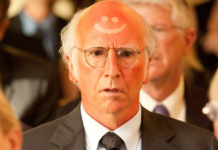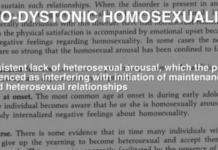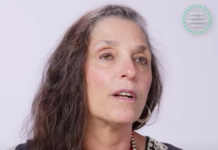All Charges Dropped Against Mom Who Refused to Allow Her Daughter to Be Taken,...
When police came to enforce a 2011 court order to remove her 13-year-old daughter Arianna, and medicate her, Maryann Golboldo stood her ground -...
AHCA Puts Disabled People One Step Closer to Institutions
From Talk Poverty: Last week, the House passed the American Health Care Act, which would cut funding from in-home care programs and community support for seniors...
6-Year-old Boy Committed to a Psych Ward
From BuzzFeed News: A six-year-old boy in Jacksonville, Florida was recently committed to a psychiatric institution for throwing a temper tantrum in school. There, he...
Antipsychotics, Restraints, and Seclusion Raising Concerns
From ABC Australia: Australia's high rate of antipsychotic prescriptions, as well as the frequent usage of restraints and seclusion, has raised concerns among Australian mental health advocates, researchers,...
Feel Bad About Feeling Bad? Embrace Negative Emotions Instead
From Big Think: According to new research, habitually accepting negative emotions rather than criticizing or suppressing them positively impacts our long-term psychological health.
"There is a lot more...
Feral Psychiatry: More on the Garth Daniels Case
On Wednesday, May 18th, Daniels had what was probably his 102nd consecutive episode of ECT. As always, he told the staff that he did not want it and did not consent to it; as always, he got it. Later on the next afternoon, Garth left to join his family in Brisbane. None of us have a crystal ball but his position now seems much better than at any stage in the past. Let's look at some of the facts and opinions surrounding this case.
The Changing Role of the Pharmaceutical Representative
From the Center for Health Journalism: Due to drug safety scandals and rising drug prices, pharmaceutical representatives are increasingly being criticized by physicians, medical schools, and...
The Silence: The Legacy of Childhood Trauma
In this piece for The New Yorker, Junot Diaz reflects on the impact of his experience of childhood sexual abuse and the ways that therapy...
Ireland: “Mentally Ill Still Forced to Endure Shock Treatment”
Despite the promises of two successive governments to end forced shock treatment in Ireland, unwilling patients are still being forced to undergo the therapy, according to the Sunday Independent. “Writer Ernest Hemingway, who committed suicide shortly after ECT, is reported to have said before his death: ‘It was a brilliant cure but we lost the patient.’"
Michelle Carter Found Guilty in Landmark Texting Suicide Case
From The Boston Herald: Michelle Carter has been found guilty of involuntary manslaughter for repeatedly encouraging her high school boyfriend to kill himself via text...
The History of Psychiatry and Gay Conversion Therapy
From The Huffington Post: Like religion, psychiatry has played a major role in oppressing LGBTQ individuals throughout history.
"Once psychiatry comes along we get horrible “treatments”...
Changing Law That Lets Mentally Ill Stay on the Streets
From the San Francisco Chronicle: San Francisco city officials are hoping to change the law that allows homeless individuals with mental health diagnoses to stay on...
“If You Wanted to Kill Yourself, You Would Have Done It”
From The Independent: The notion of choice is increasingly being used to discourage suicidal people from seeking help. Many people's suicidal thoughts and actions are...
What Care for the Criminally Insane Can Teach Us
In this piece for The Pew Charitable Trusts, Michael Ollove reports on Oregon's model of intense care and supervision for those found guilty except for insanity.
"Oregon’s model...
Mental Health Act Review: Will We See Meaningful Change?
From Tales from the Madhouse: In fall 2017, the UK government an Independent Review of the Mental Health Act, inciting hope for radical revision of...
Critical Psychiatry: “Stop Psychiatric Abuse”
On his Critical Psychiatry blog, Duncan Double offers his response to Peter Gøtzsche’s and Peter Breggin’s latest blogs on forced treatment. “They want to...
More Lavish the Gifts to Doctors Means Costlier Drugs Prescribed
From The New York Times: A new study found that when drug companies give gifts to doctors, the doctors prescribe higher quantities of — and more expensive —...
Drug Policy Alliance Member Targeted by Philippine President
From the Drug Policy Alliance: Last week, Drug Policy Alliance Board Member Dr. Carl Hart visited the Philippines to speak at a drug policy forum....
Correction: No “Charges” Against Former FDA Commissioner Margaret Hamburg
Our headline on an Around the Web item posted on June 8 stating that the former head of the FDA, Margaret Hamburg, had been "charged"...
PsychRights’ Letter to the President’s Task Force on Gun Violence
I am flattered and pleased to have been asked by MadInAmerica to post here the letter PsychRights wrote Monday to Vice President Biden regarding the misguided, counterproductive and very dangerous focus on identifying and forcing "treatment" on people diagnosed with mental illness as any part of the solution to gun violence in the United States.
Mental Health Industry Should Embrace Choices Beyond Drugs
In this video for NowThis, Yana Jacobs critiques the mental health industry standard of prescribing drugs as the first-line treatment for "mental illness." She emphasizes...
The Problem With Hospitalizing Opioid Addicts Against Their Will
From The Washington Post: In Massachusetts, which has one of the highest rates of opioid deaths nationally, addiction-related civil commitments have doubled in the past...
Word Salad is Not “Disorganized Thought and Speech”
This piece for Holistic Elephants discusses the role of social context and environment in our perception and construction of "word salad," a common symptom of psychosis and...
Inappropriate Use of Antipsychotics on Adults with Intellectual and Developmental Disabilities
One-third of adults with an intellectual or developmental disability are dispensed antipsychotics, despite having no existing psychiatric diagnosis.
A Dribbling, Suicidal Mess – Until I Kicked the Pills
In this piece for The Sunday Times, Oliver Thring tells the story of Katinka Blackford Newman, a woman who became psychotic after taking antidepressants and...




























